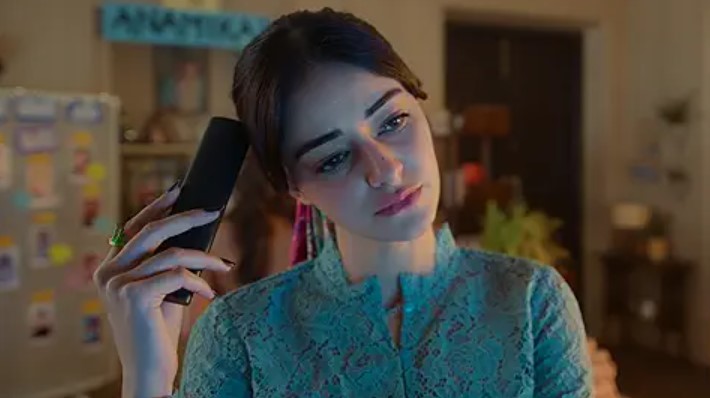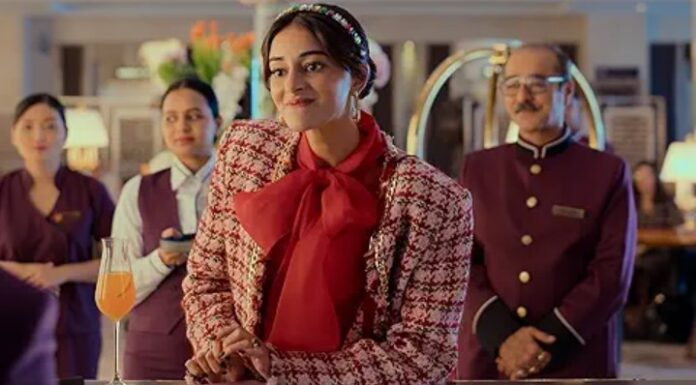September 6, 2024: When you think of luxury, style, and a dash of self-deprecating humor, Call Me Bae might not be your first pick—but this eight-episode social comedy is a surprisingly enjoyable treat. Directed by Collin D’Cunha and created by Ishita Moitra, this series takes you on a whirlwind journey through the life of Bella “Bae” Chowdhary, a wealthy South Delhi girl turned accidental Mumbai survivor. At first glance, the show appears as nothing more than a surface-level exploration of riches, social standing, and reality checks, but a deeper dive reveals flashes of wit and insight.
Ananya Panday leads the charge as Bae, bringing a charismatic performance to the screen that manages to elevate the character beyond the superficial. At its core, Call Me Bae follows Bae’s journey of transformation as she’s thrown out of her plush Delhi lifestyle and forced to confront the real world in Mumbai. From hopping autorickshaws to eating street food on the beach, her foray into the working world, and ultimately, self-discovery, is handled with a light-hearted yet relatable touch.
The narrative largely dances on the edge of frivolity, offering comedic moments that, while not groundbreaking, are entertaining and provide ample charm. Panday’s portrayal of a spoiled heiress-turned-independent woman carries the show, ensuring that audiences stay invested in her evolution. It’s refreshing to see Panday stretch beyond her usual on-screen persona and deliver a character that grows and matures, even if the journey feels a bit rushed at times.
Call Me Bae is filled with colorful, quirky characters who assist Bae on her path. From her flatmate Saira (played by Muskkan Jaferi) to an outspoken news reporter and a vibrant celebrity actress, these supporting roles add flair and diversity to the storyline, giving Bae the space to grow. The chemistry between the cast members is delightful, with Vir Das stealing scenes as an eccentric TV anchor who adds a sharp satirical edge to the show’s otherwise breezy narrative.
Call me Bae is worth binge watching; Ananya Pandey Excels in her role

The series cleverly taps into cultural references, poking fun at the elite lifestyle through witty dialogue and even meta moments that blur the line between fiction and reality. There’s a memorable instance where a character’s quip about social class mirrors a real-life viral comment made by Panday herself. These small but sharp inserts make the show more than just another social comedy—it’s a commentary on privilege, self-awareness, and finding balance in a chaotic world.
However, the show doesn’t shy away from touching upon more serious topics as it progresses. Bae’s life takes a more intense turn when she exposes the corruption and unethical practices of a media mogul, adding a layer of intrigue and drama to the storyline. While this transition feels somewhat abrupt, it helps ground the otherwise glossy tone of the show, giving it some much-needed weight.
Visually, Call Me Bae stands out with its rich aesthetic—designer clothes, lavish settings, and vibrant cityscapes. The costume design deserves a special mention, especially as Bae’s character arc is reflected through her evolving fashion choices. From her high-end Delhi couture to more practical, everyday Mumbai wear, the shift mirrors her inner growth.
Despite its many positives, Call Me Bae does have its moments of predictability and occasional flat humor. The narrative, though engaging, sometimes leans too heavily on familiar tropes, and a few episodes feel stretched without enough substance to hold the viewer’s attention. Still, for those looking for an easy, entertaining binge, the series delivers just enough charm to keep you hooked.
In conclusion, Call Me Bae is a fun, fashionable ride that doesn’t take itself too seriously but still manages to offer moments of reflection and growth. Ananya Panday’s portrayal of Bae is both endearing and entertaining, making the show worth watching, especially for those who love light-hearted social comedies with a glamorous twist.

